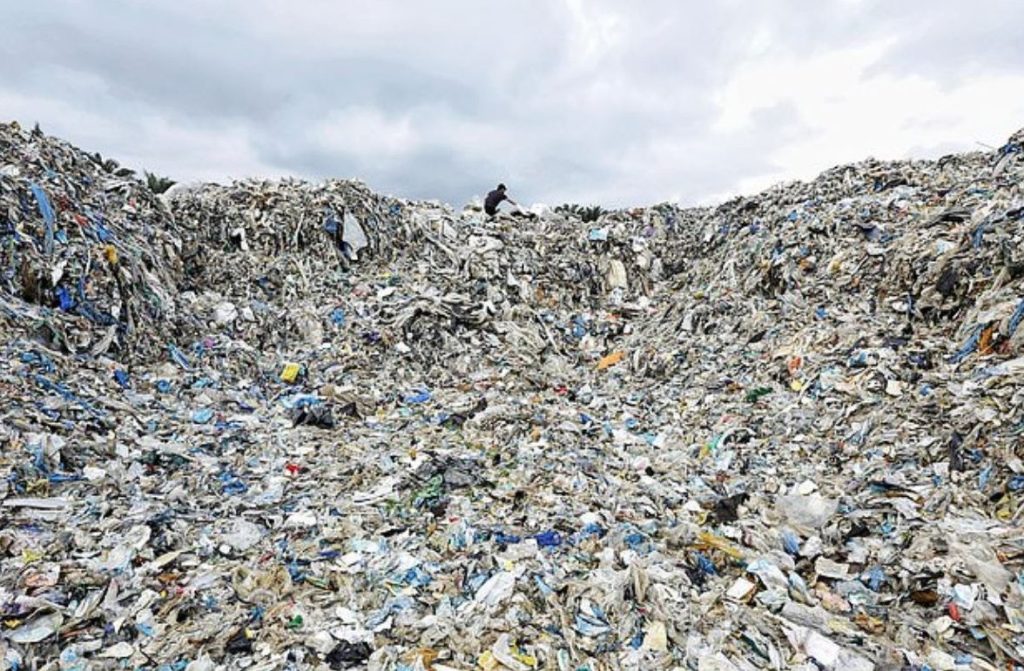Co-workers were standing around the water cooler when the boss came in and asked everyone, “What are you all doing to celebrate Earth Day this year?” One employee answered, “Already done – I sent all my work-related e-mails to the recycle bin.”
There are a thousand recycling jokes, which is ironic because most Americans don’t consider recycling funny. We have been told to recycle for decades, and it has become a badge of good citizenship for millions. It is the law in 25 states and hundreds of cities.
Modern society has become very adept at recycling some products. Aluminum is the world’s most recycled material. Seventy percent of all aluminum cans in the world are recycled, and over three-fourths of all the aluminum ever produced (1.5 billion tons) is still in productive use. In the U.S., 57 percent of all the metal produced originates from recycled scrap.
Similarly, vast quantities of paper are recycled. Americans produce nearly 70 million tons of post-consumer paper waste annually, down from a high of 90 million tons 20 years ago. That seems like an outrageous amount of paper, but over 70 percent of it is recycled.
No so with plastic.
Despite widespread recycling requirements, the sad truth is that almost none of the plastic produced and used in the U.S., or any other country, is recycled. The U.S. has gone from about 6 million tons of post-consumer plastic waste in 1980, to over 35 million tons today, and the percentage that is recycled has scarcely increased at all. Starting at about zero in 1980, Americans today still recycle only about six percent of all that plastic.

There are many kinds of plastics, only a couple of which are recyclable, and several of which are not. And the sorting process is so expensive that virtually no recycling centers do it. It costs more – much more – to recycle plastic than to produce new plastic. Everyday items like grocery bags, straws, and water bottles are very expensive to recycle but cost almost nothing to produce new from scratch.
So, what do all the cities requiring plastic recycling do with the mountains of it received by their recycling centers? They send 80 percent to the landfills and incinerate the rest.
A recent National Public Radio story pronounced the very concept of plastic recycling dead. Even Greenpeace published a study in 2022 called “Circular Claims Fall Flat Again.” The report concluded, “After more than 30 years, it is time to accept that plastic recycling is a failed concept.” As Capital Research Center’s Ken Braun recently wrote, even neutral sources agree plastic recycling is fundamentally impractical.
Does that mean all the plastic has to wind up in landfills? Certainly not. Braun’s conclusion was part of a lengthy article extolling the potential of aviation fuel made from post-consumer plastics.
In fact, Chevron has received EPA approval for a process called pyrolysis superheating, which turns hydrocarbons from plastic into jet fuel. Braun quotes a recent American Chemistry Society paper agreeing that polystyrene plastics “can be well converted into aviation fuel through microwave-assisted pyrolysis.” Never having studied chemistry, I have no idea what that means, but it provides yet another example of the potential benefits of plastic, an invention that has dramatically increased the global standard of living. We take for granted such benefits as food preservation, sterile medical equipment, cheap bottling and packaging, non-corroding pipes, electronics, clothing, cell phones, and innumerable others. And now possibly, cheaper plane tickets?
Modern people are not about to stop using plastic, so better ways to reuse it are important. This new aviation fuel technology is one of many possibilities being developed. Predictably, some environmental industry groups like Greenpeace are against it. Why? Because as one foundation donor warned, it might be so efficient that it kills the recycling effort – which as even Greenpeace admitted, is already dead.
Here’s a new one: Three guys argue in a bar, a Texan, a Californian, and a Coloradan. The Texan produces a bottle of whiskey, takes a swig, throws it in the air and blasts it with his Colt 45. The Californian uncorks a bottle of wine, pours a glass, swirls it around and sniffs it, comments on the tart insolence of its bouquet, then tosses the bottle in the air and blasts it with a little chrome-plated pistol. Then the Coloradan takes a deep breath, touches the purple crystal hanging around his neck on a leather string, flips back his ponytail, puts down the guitar, takes a gulp of Coke Zero and tosses it in the air, shoots the other two guys, and catches the bottle. He says, “We have too many Texans and Californians here, but plastic bottles we can recycle!”
Or can we?




Another question. Wind turbines cannot be recycled when their useful life expires. What will be done with them?
I like the last joke about the three individuals. I am guessing the one from CO must be a transplant. Pot calling the kettle black.
Thanks for an entertaining and relighting read as always!!
Comments on this entry are closed.